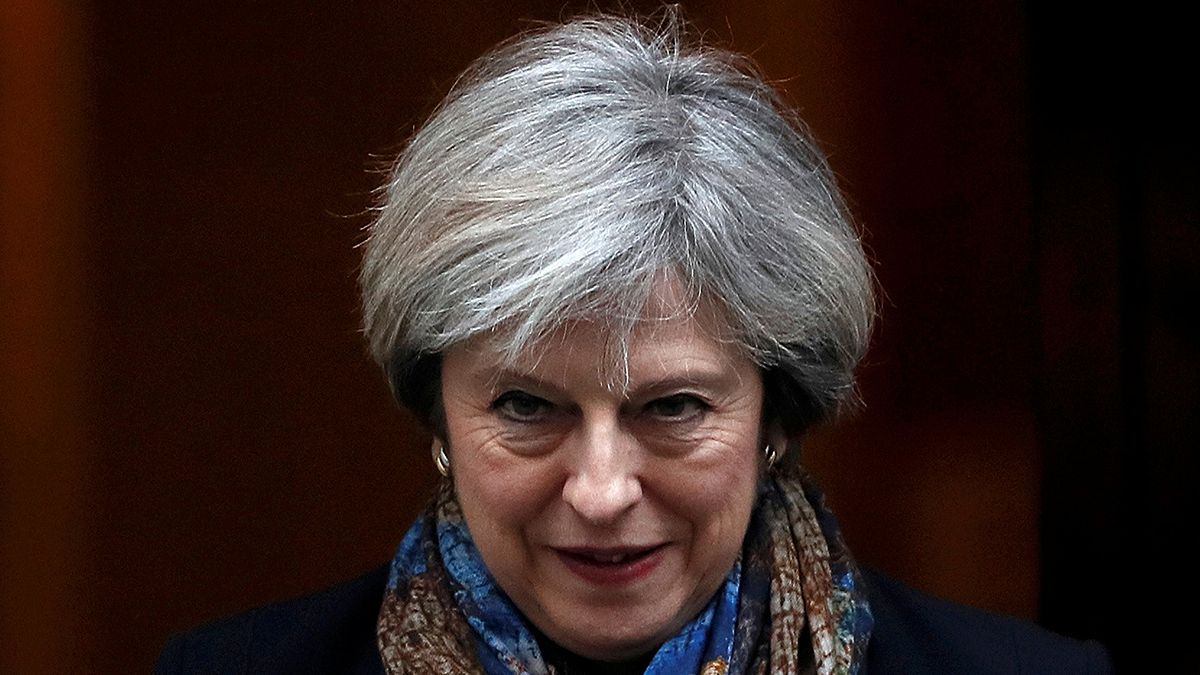Theresa May becomes the first world leader to meet the new US president on Thursday night, but is the "special relationship" about to take on new depth?
British Prime Minister Theresa May has left Downing Street for the US and a rendez-vous with Donald Trump, the first world leader to meet the US president since his inauguration last week.
With an eye on the post-Brexit era – and no doubt a potential trade deal – she is looking to boost Britain’s so-called “special relationship” with America, and is expected to talk of joint leadership a “new age”.
Appalling error by May to grovel to #Trump for trade deal. He wants to destroy #freetrade
— Vince Cable (@vincecable) 25 janvier 2017
The prime minister has also said she is prepared to talk candidly with the new president. Responding to Trump’s comments promoting waterboarding, her spokesman said Britain did not condone torture or inhumane treatment.
Theresa May is also expected to defend the UN and NATO and has criticised Trump’s previous remarks about women and Muslims.
She is due to address Republican leaders in Philadelphia at an event attended by the president.
No romance this time around
There were famously warm relations between Ronald Reagan and Margaret Thatcher, the former almost an acolyte of the monetarist free-marketeer, anti-Communist British leader. They seemed to feed off each others’ conviction.
Downing Street is trumpeting May’s hastily-arranged visit as a diplomatic coup.
“I am pleased that I am able to meet President Trump so early in his administration. That is a sign of the strength of the special relationship between the United Kingdom and the United States of America, a special relationship on which he and I intend to build. We want to achieve an arrangement that ensures that the interests of the United Kingdom are there, that are put first, and that’s what I will be doing,” she told the House of Commons before leaving.
But will the pair really see eye-to-eye? After all, Donald Trump has made it clear that the US is finished with doing favours.
“From this day forward, it’s going to be only now, America first, America’s first,” he intoned at his inauguration.
Even if he offers moral support on Brexit, once saying “I think Brexit is going to end up being a great thing”, and even telling a confused American audience during his campaign “Call me Mr Brexit”, that doesn’t mean he will give May an easy ride. Lest it be forgotten May was in the Remain camp, in theory, and Trump’s best Brit buddy is persistent thorn in the Conservatives side Nigel Farage.
Traditionally Britain and the US are the world’s staunchest supporters of free-trade capitalism, supposed EU restrictions on which partially drove Britain’s “Leave” vote. Keen to have an early trade deal with the US, May may find protectionism and isolation is more on Trump’s mind, and the EU has warned London it can talk, but formal bilateral negotiations are not allowed under EU rules.
Dan Burton says #Trump#trade stance is right on the money https://t.co/DSnrGAS8ll#NAFTA#freetradepic.twitter.com/aqFxlQYZ8D
— The Washington Times (@WashTimes) 26 janvier 2017
No more IOUs for NATO
Trump’s desire to disengage America from international commitments if not offered better terms has already been expressed about the American-led NATO military alliance.
“And I said a long time ago that NATO had problems. Number one: it was obsolete because it was designed many many years ago. Number two: the countries weren’t paying what they’re supposed to pay,” he said during his campaign.
Britain is the European pillar of the alliance, the major budgetary contributor after the US and it provides European theatre military leadership. May says she is certain Trump understands NATO’s importance. But over policy towards Russia and Iran there are glaring differences.
“Even America needs close friends and Britain has managed to, partly by luck and partly by stealth, place itself in front of the queue again,” says Professor of War Studies John Bew of Kings College London.
America First, great power rivalry and our new age of isolation – by
JohnBew</a> <a href="https://t.co/zFlmNlJ2iL">pic.twitter.com/zFlmNlJ2iL</a></p>— Jason Cowley (JasonCowleyNS) 25 janvier 2017
Both nations may end up finding themselves isolated on the world stage because of their actions, but instead of that bringing them together they may find their interests and visions of the world have moved on from the harmony of the Reagan-Thatcher years.


